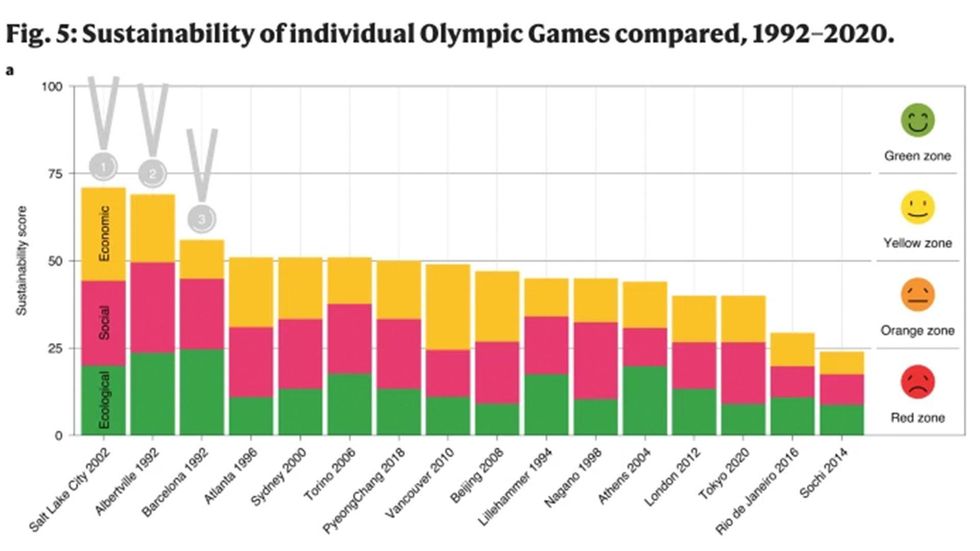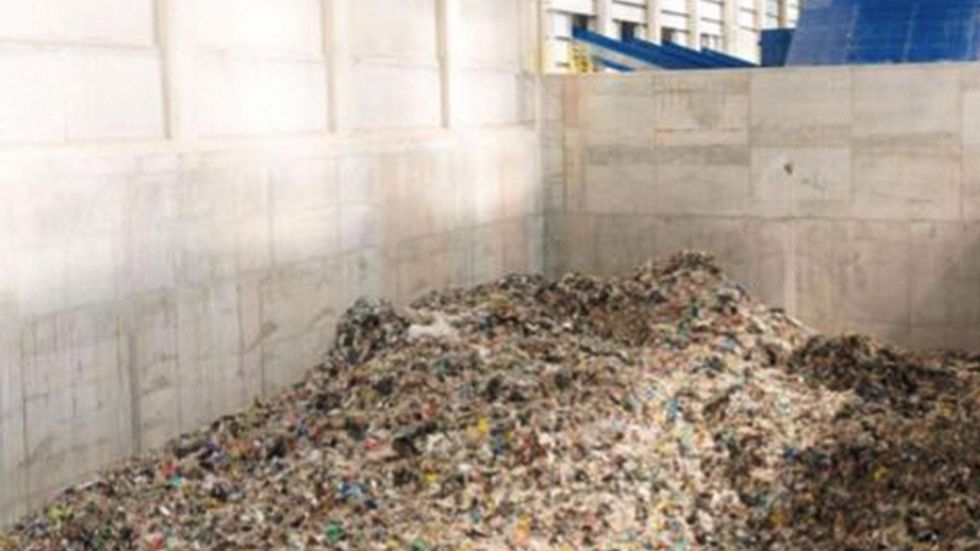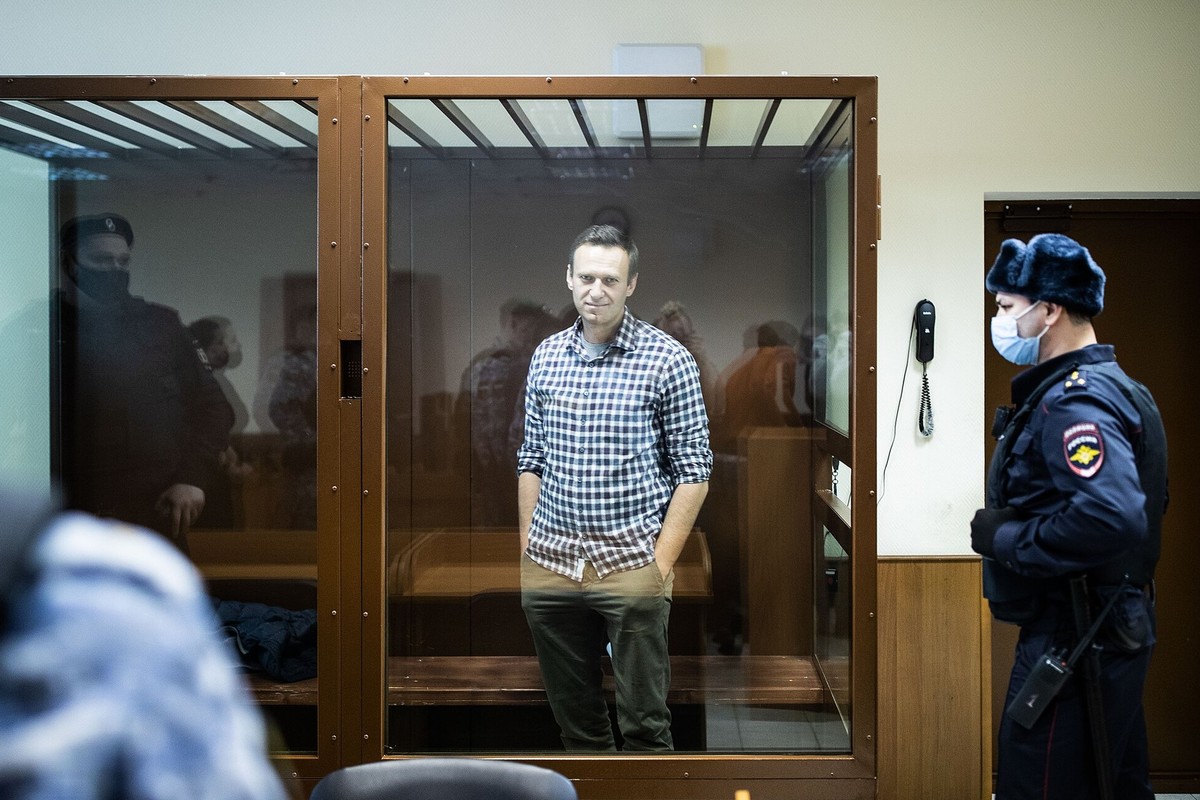Study reveals the trajectory of Olympic Games' sustainability is heading in the wrong direction.
Japan's Olympic Committee has touted the sustainability of their games but a new survey of every Olympics since 1992 puts the Tokyo 2020 games close to the bottom of the pile.
The 2021 study by Swiss researchers assessed the 16 winter and summer games since 1992 based on social, economic and ecological sustainability and found that the Tokyo Games are continuing a downhill trajectory in sustainability.
"Unfortunately, our findings show that mega events, or at least the Olympics, are not getting more sustainable as time goes on," said Dr Sven Daniel Wolfe, a co-author of the study and political geographer at the University of Lausanne, Switzerland.
The International Olympics Committee [IOC] and Tokyo organisers claim sustainability is a key objective, citing initiatives ranging from medals made from recycled electronic waste to Olympic torches powered by hydrogen fuel.
However, as Wolfe explained in a Zoom interview with Newsworthy, the IOC and the host city outline their sustainable objectives when they have international attention and it can be more performative than substantive.
In the Swiss study, "An Evaluation of the sustainability of the Olympic Games", published in Nature Sustainability journal in April, Tokyo gets an overall sustainability score of 40 out of a 100, sitting under the long-time average of 48 points. The research is the first to comparatively evaluate the sustainability of the Olympic Games. Tokyo is ranked in the bottom three, only Rio 2016 and the Sochi Winter Olympics in 2014 fared worse.

"My suspicion is that there's a lot of greenwashing going on in the sense that it's more important to put on a good event than it is to do a fair accounting of the environmental costs," said Wolfe.
Cam Walker, campaigns coordinator for Friends of the Earth Australia, tells Newsworthy that Tokyo's use of hydrogen fuel is an example of greenwashing, where an organisation conveys a false impression about the level to which its products or processes are environmentally friendly. Tokyo sourced the hydrogen it will use in the Olympic torches from lignite coal mines in Victoria's La Trobe Valley and it is produced by burning brown coal.
Environment Victoria, an independent not-for-profit group, sets out that while hydrogen itself is a green fuel, the gasification of brown coal to produce hydrogen releases large amounts of greenhouse gases.
"There was no carbon sequestration, so those emissions are going to be released into the atmosphere," said Walker.
The IOC and Tokyo 2020 organisers say their goal is to help promote sustainable solutions globally, with a "be better, together – for the planet and the people" concept.
"We are already using our own media to communicate about these initiatives, along with other environmental and climate issues to international audiences," Julie Duffus, the IOC's senior manager for sustainability, told Green Sports Blog in March.
The IOC's bold aim is to reach climate positivity by 2024. However, in Tokyo, organisers admitted to falling short on their sustainable timber sourcing goals. In 2018, Tokyo 2020 organisers confirmed that 87 per cent of plywood (170,000 sheets) for venue construction was sourced from threatened South-east Asian rainforests.
Tokyo 2020's social and economic sustainability has also been impacted by the displacement of more than 500 Tokyo residents for the duration of the games and the cost of COVID-19 delays and rescheduling.
The contract signed by each host city with the IOC sets out the requirement for sustainable efforts, yet the IOC has never provided a model for independent evaluation, according to the Swiss study.
"There was commitment from the IOC back in the early 2000s to track what happens after a city hosts the Olympics for up to 10 years. That's clearly not happening," said Walker.
The Sydney 2000 Olympics were applauded for being the first "green games" after the IOC adopted the environment as its third "tier" in 1993, joining the original tiers of sport and culture. In the study, Sydney still ranks equal fourth on the Games' sustainability league table and, in the two decades since, only the 2002 Winter Games in Salt Lake City, has achieved a higher ranking. The trajectory of Games' sustainability is heading in the wrong direction.
'My suspicion is there's a lot of greenwashing going on ... it's more important to put on a good event than it is to do a fair accounting of the environmental costs.'
To improve Olympic sustainability, the study suggests greatly downsizing the event, rotating it among selected cities and electing an independent body of sustainability governance. The "in-house" knowledge provided by an independent governing body and the rotation among cities who have hosted before would lead to more substantive sustainability practices, said Wolfe.
"What ends up happening is in moving to a new area, you lose a lot of knowledge and experience that people have gained before," he said. "And so, there's panic in how to deploy these games in new environments."
For Walker, independent verification of sustainability measures is "essential" because the IOC has failed to uphold its sustainability objectives.
Looking ahead to 2032, where Brisbane is the preferred host city candidate, environmental activists are keen for early involvement with Games planners to ensure a more sustainable outcome for all.
"You need to talk to the First Nations people, you need to talk to welfare and service organisations, you need to talk to environmental organisations," said Walker. "If they're not there at the start of planning, then their involvement down the track will start to look very token."








